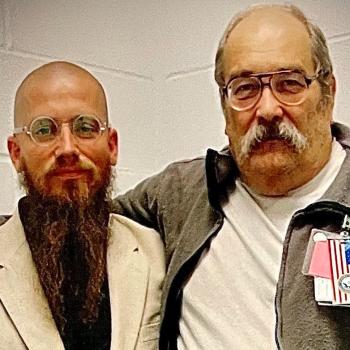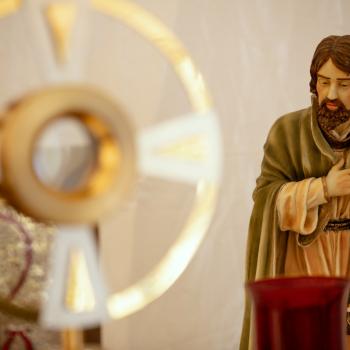Since 2019, I’ve been a part of the Knights of Columbus, a decision I never regretted. I’m in my mid-thirties and this age is a time of transition for Catholic men who perhaps are straddling a young adult and young family group. Looking at parish life, I think the 30-40 year age group is underrepresented, understandably so, because of family responsibilities.
For my local Knights of Columbus council, the fraternal year begins in June. The new year is marked by a new slate of officers who commit to serving in their respective roles for the upcoming year. How the slate comes together is quite a process. At the May council meeting, there’s usually a nomination process of brother knights who either want to continue their roles or who might be interested in serving. When the question is put out there, “Who will step up?”, it’s usually met with crickets chirping. Recruitment is difficult because very few men are willing to step up to a leadership role.

It’s ironic that one of the phrases that the Knights of Columbus advertises is “Lead, they will follow.” This is aimed at Catholic fathers, challenging them to step up as a faith figure in their family. Why is it a struggle to see any initiative among Catholic men in the parish and in Knights of Columbus councils? It may be a time commitment issue, but I would venture to guess that another reason may be fear. How do we name this fear? Fear of failure? Fear of burnout? Fear of uncertainty? Whatever the case, I think this fear is suffocates parish life and the Knights of Columbus as a worldwide order.

I think one challenge is expressing the faith outwardly. Men privatize their faith. I can speak from experience. My father never talked about his faith growing up and still does not. It’s not to say my father has anything against the faith. He faithfully brought our family to church growing up, but faith was not something we talked about. Last month, Supreme Knight Patrick Kelly spoke at the John Carroll Society’s 38th Annual Award Dinner, being one of the awardees. He remarked:
“All of us are called to be missionaries in a society that often views religion, at best, as a matter of private opinion — or at worst, as an enemy of the public good…This requires that we live out our mission constantly … at all times, in all places, and to all the people we meet.”
The last part struck me: “This requires that we live out our mission constantly…at all times, in all places, and to all the people we meet.” Mike Mason, founder of the St. Joseph Society, in a Crisis Point podcast interview, put it bluntly:
“That’s why we’re there. We’re not there to eat donuts. We’re not there to eat brats. We’re not there to do a service project. We’re not there to discuss what Paul meant in Galatians 5. No, what we are here for is we’re here to figure out how to become holy.”
Mason spoke about the staleness of men’s groups and why men in their 30s and 40s aren’t fully engaged in groups or parish life. He notes that men are called to lead because it’s a path to holiness. I think about my own marriage preparation and how it’s been drilled into me that a Catholic man’s mission, as a husband and father, is to lead their spouse and children to heaven. There are vehicles, if you will, to help men fulfill that such as fraternal organizations like the Knights of Columbus and the St. Joseph Society.
Writer Gerald Korson, in an 2021 article “Live the Virtues of a True Leader,” wrote:
“Leadership is about character, after all, and character must be formed and developed through effort, discipline and grace. A virtuous character makes for a virtuous and true servant leader. That’s what Catholic men must become in order to lead their families and communities amid the challenges they face.”

Perhaps men who are hesitant to take up the mantle as a leader, have not given themselves the opportunity to form themselves as a servant leader. You cannot give what you do not have and you cannot lead without having people around you. In rethinking the title for this article, perhaps it’s better to reframe it as an invitation, “Who will join me?” Take the step today and join your brothers in community and lead!

















